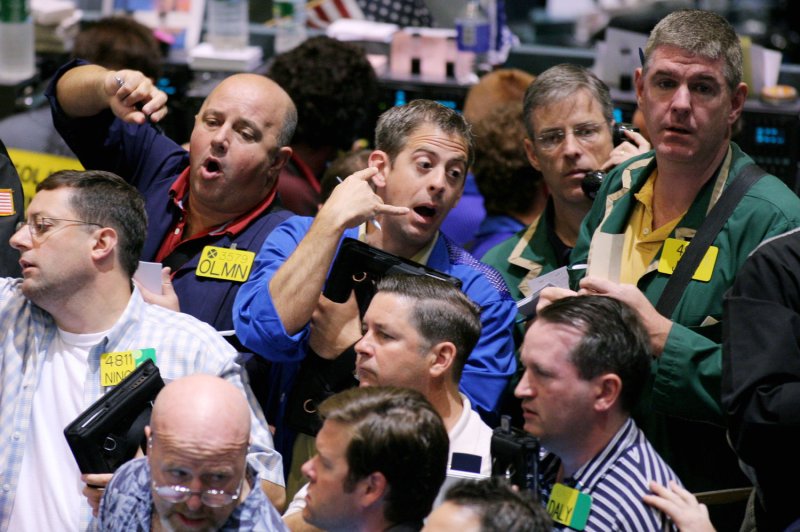Oil prices surge in early Monday trading as investors react to the latest moves from OPEC and non-member states on production levels. Fil ephoto by Monika Graff/UPI |
License Photo
NEW YORK, Dec. 12 (UPI) -- Crude oil prices soared to historic highs in early Monday trading in response to a weekend production agreement reached between OPEC and non-OPEC members.
OPEC members and representatives from major oil-producing nations like Mexico and Russia met in Vienna during the weekend to review options to bring balance back to a market characterized by oversupply.
Delegates to the meeting "proposed to adjust their oil production, voluntarily or through managed decline, starting from Jan. 1 for six months, extendable for another six months, to take into account prevailing market conditions and prospects," OPEC said in a weekend statement.
The deal is symbolic more than anything as it cuts out only a minor portion of the 1.5 million barrels per day sidelined in a previous OPEC agreement. With oil prices already on the rebound following the standing deal to hold output at 32.5 million bpd, the weekend arrangement indicates producers are willing to take extraordinary steps to put a floor under crude.
Crude oil prices opened in Asia up as much as 6 percent, but softened somewhat as traders started moving in New York. The price for Brent crude oil was 3.7 percent higher than Friday's close to open the day at $56.36 per barrel. West Texas Intermediate, the U.S. benchmark price for oil, was up 4 percent to $53.58 per barrel.
In a weekend commentary, Gary Ross, the chairman of Pira Energy Group, said the goal of the weekend deal is to hasten the return to balance.
"This is a very bullish development," he said.
Adherence to the agreement means some producers would have to cut back and possibly surrender a part of their market share. Too strong of a rally may also bring U.S. shale oil producers back into action and reintroduce heavy supply-side pressures to the market.
Saudi Arabia, the de facto head of OPEC, said it potentially has more room for cuts, though other players like Iran and Iraq have said they expect more production, not less. Iran under the terms of an OPEC deal has room for increases, while Libya and Nigeria are exempt altogether.
Much of the rally is supported on theoretical terms as the recent production agreements don't actually go into play until January. David Hufton with brokerage PVM said in a statement that those cuts will come at a time of year when demand is the weakest.
"Therefore, from a fundamental point of view, it is difficult to justify the front end price surge other than that is where the liquidity is and where speculative players, moving in herds, always prefer to place their bets," he said.















